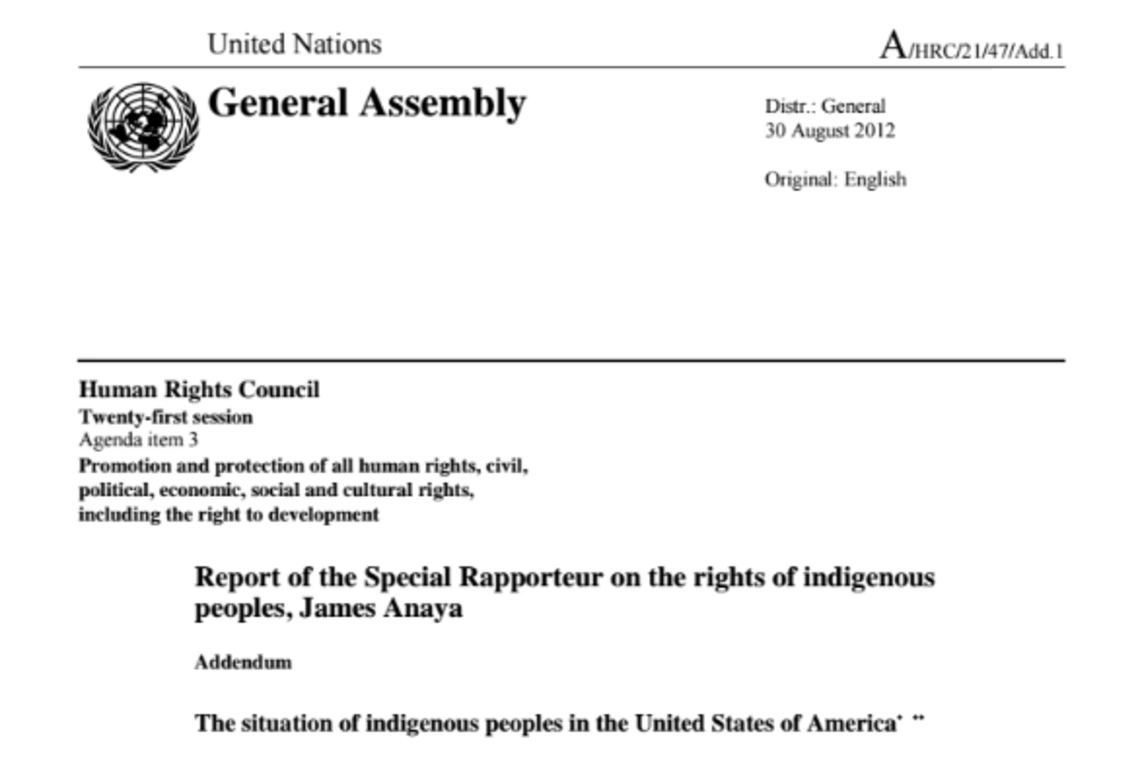In this report, the United Nations Special Rapporteur on the rights of indigenous peoples examines the human rights situation of indigenous peoples in the United States, on the basis of research and information gathered, including during a visit to the country from 23 April to 4 May 2012. During his mission, the Special Rapporteur held consultations with United States officials as well as with indigenous peoples, tribes, and nations in Washington, D.C., Arizona, Alaska, Oregon, Washington state; South Dakota and Oklahoma, both in Indian country and in urban areas. Appendices I and II to this report include, respectively, summaries of information provided by the Government and of information submitted by indigenous peoples, organizations and individuals in connection with the mission...
Additional Information
Anaya, James. "The situation of indigenous peoples in the United States of America." Report of the Special Rapporteur on the rights of indigenous peoples. Human Rights Council. General Assembly. United Nations. Geneva, Switzerland. August 30, 2012. Paper. (http://unsr.jamesanaya.org/docs/countries/2012-report-usa-a-hrc-21-47-add1_en.pdf, accessed February 13, 2024)

